‘Pay attention to what the folks at home say’: Senator Tkachuk retires

A seminal childhood encounter with a future prime minister in a small prairie town foreshadowed Senator David Tkachuk’s lifelong involvement with politics. Senator Tkachuk organized dozens of election campaigns that sent others to Ottawa. In 1993, it was his turn to represent Saskatchewan on Parliament Hill and make his mark on the capital.
Senator Tkachuk retires on February 18, 2020. Before he left Ottawa, SenCAplus asked the dean of the Senate to reflect on his 26 years in the Upper Chamber.
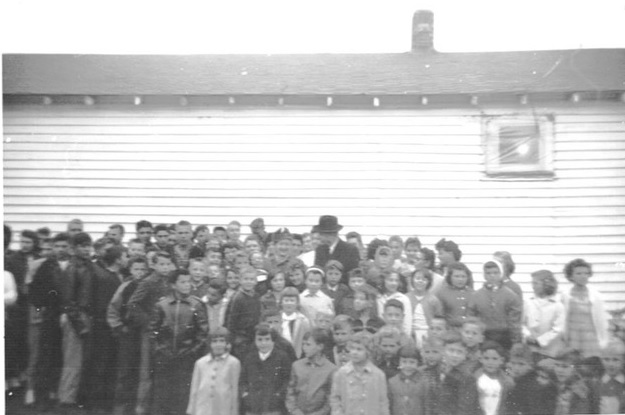
You’ve said politics first caught your imagination when you were a young boy watching John Diefenbaker, who would become prime minister, give a speech on the back of a flatbed truck in Saskatchewan. Why did that experience make such an impact?
It was the 1957 election and we had a general store and lived behind it on Main Street. Diefenbaker travelled in a caravan, stopping in every little town. When they dropped into Weirdale, Sask., I was on my bike and I stopped to listen to him. I thought, “Geez, look at all the people who came to hear what he had to say. It would be neat to have that kind of respect.” The whole town came out. It was a big deal; he was our member of Parliament and he was running for prime minister.
Since then politics has always been a big part of your life. What is it going to be like to leave Ottawa and start a new chapter?
I’ll go back to the future. I’ll go back to doing what I used to do; volunteer and help my MP and my member of the Legislative Assembly. Retirement will give me more time to knock on doors and assist them. And I know I’m going to have more time to spend with my grandchildren, which will be great!
You are retiring as dean of the Senate — the Red Chamber’s longest-serving member. You are also the last senator who was appointed by Prime Minister Brian Mulroney. Do you remember the day the prime minister called, and how you felt when you were asked to serve as a senator?
I remember the call. I was making breakfast for my son who was getting ready for school. There were about a dozen of us the newspaper said were in the running, so initially I thought the prime minister was calling me to comment on someone else. He said no and he asked me to serve in the Senate. I said yes. I was excited and didn’t know what to expect. They wanted me to come to Ottawa quickly because there was a vote on June 10. I got the call on June 8. The next day, I was on my way to Ottawa.
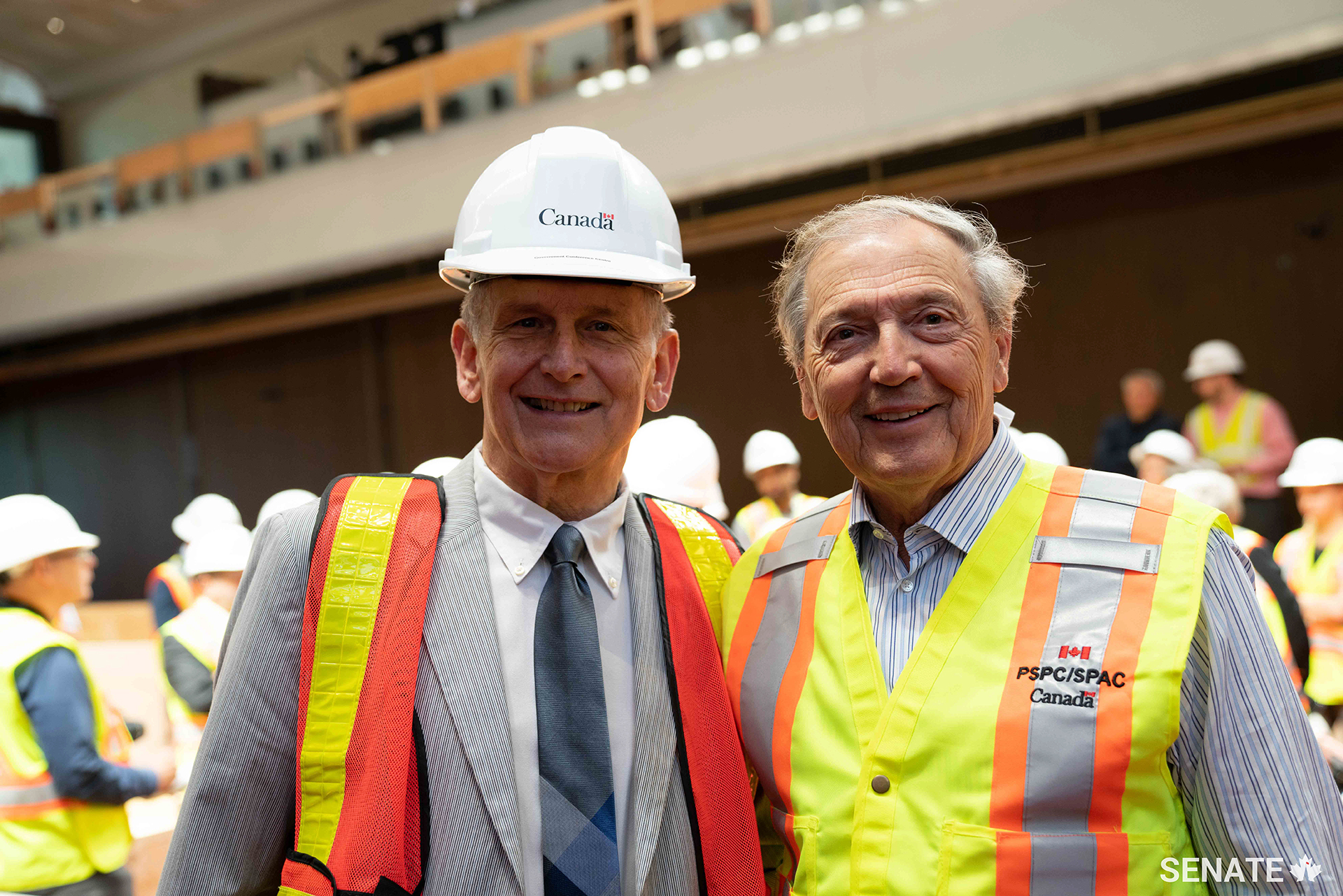
During the 26 years you’ve spent in the Upper Chamber, it’s hard to find a committee you haven’t sat on. What’s some of the committee work you are particularly proud of and why?
I’ve been on 10 standing committees and five special committees (Anti-terrorism, Senate Reform, Bill C-36 on the Anti-Terrorism Act, Senate Modernization and Pearson Airport Agreement). I’m proud of the work of the banking committee, where I’ve been a member since 1996, with a short exception when I was caucus chair. In 2015, I became chair of the committee. I tried to encourage the committee to deal with issues as they came up, instead of simply sticking to the studies we selected. There are some issues you can address in two or three meetings. For example, several years ago, a proposed federal government policy would have stopped credit unions, which are big in Saskatchewan, from using the word, “banking.” I thought that was highly unfair. The committee held hearings and I think our work caused the government to back down and change the rules.
I’m also proud of the changes we made in Internal Economy. I was the one who recommended the old train station be used for the temporary Senate Chamber. I like antiques and old buildings, and I remembered being in the railway building for a first ministers’ meeting back in 1982. We toured the place and the whole committee decided it was a good option. Public Works was quite happy about it because the train station was on the list of buildings to redo. The department could combine the restoration and the Senate project with the view that someday, when we return to Centre Block, it would become a conference centre. We saved a couple hundred million dollars and didn’t have to ruin the East Block. To me that was a big deal. It’s a great place. I think senators are quite happy to be there.
A lot of bills passed through the Chamber during your tenure — which ones stand out for you?
The most important thing I did was my work on the Justice for Victims of Terrorism Act. I moved a Senate public bill in 2005 to allow victims to sue states who sponsor terrorism. At the same time, Stockwell Day, then a Conservative member of Parliament, tabled a companion bill in the House of Commons to attack it from both sides.
In 2006, the Conservatives were elected and Day became a minister, so it was left to me. The bill went through many alterations because of prorogations or elections. Finally, Prime Minister Stephen Harper, who was very interested in the issue, introduced the legislation as Bill C-10 in 2011. I worked with the government on many amendments and by the time it got to the Senate it was passed pretty quickly. Now it is being used and victims have been compensated.
You’re from Saskatchewan and have been representing the province as a senator. How has that shaped your role here in Ottawa?
I’ve been shaped by my province. I’m a Conservative; Saskatchewan is a conservative province. I’m a Diefenbaker-type Conservative, and that has shaped the way I’ve handled myself. The issues that concern Saskatchewan I have been involved in. For example, I worked extremely hard on preventing the gun registry from happening and we got rid of it under the Harper government.
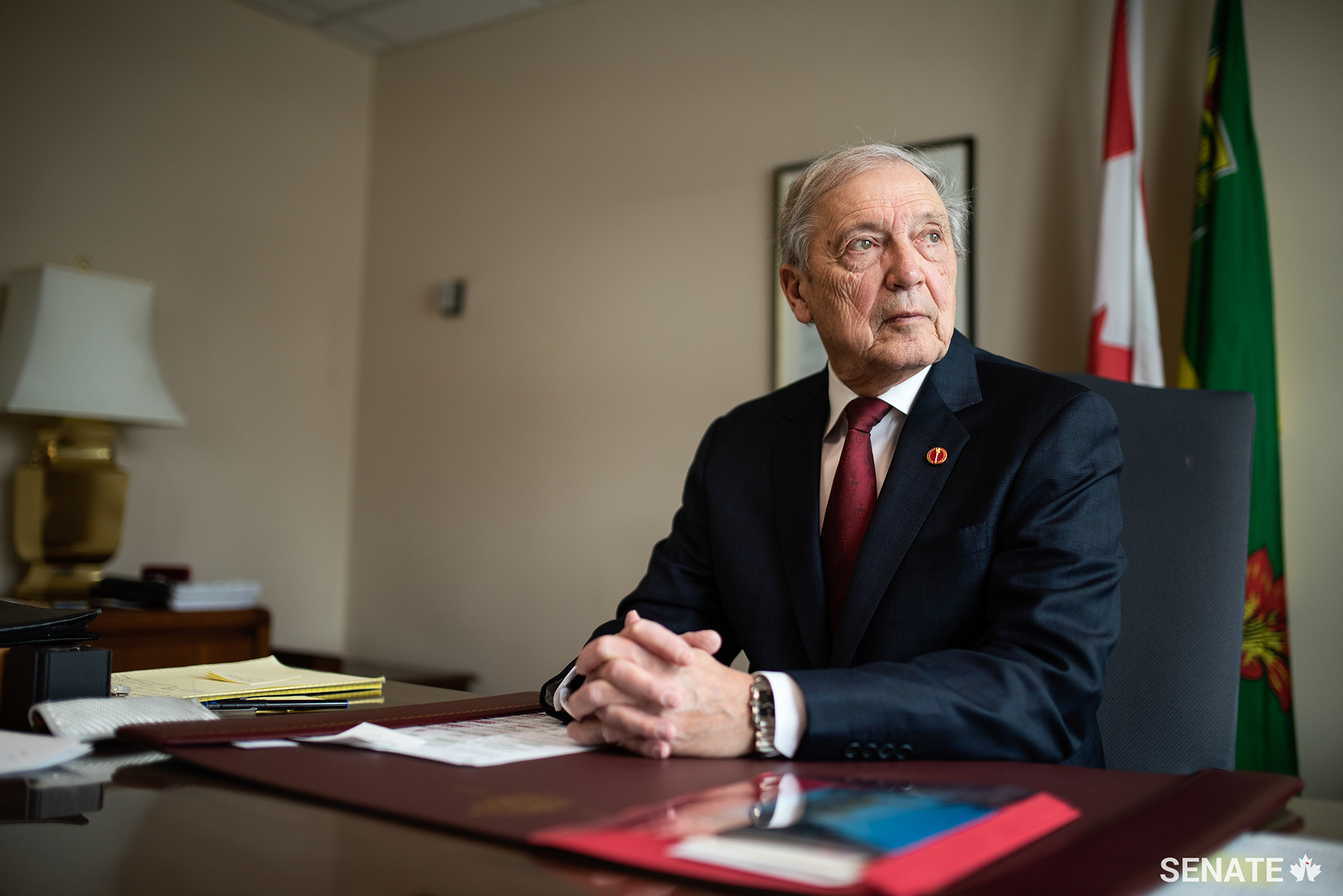
I’ve also worked on agricultural issues such as animal cruelty. There was an animal rights bill introduced by the Chrétien government, which caused problems in the agriculture industry. No one wanted to have animal cruelty, but farmers were worried they would be charged with being cruel to animals for doing their job of providing food to people. We worked hard at coming to an agreement with the government that would satisfy all interests.
Now it’s the energy sector, whether it’s been working on Bill C-69 (the Impact Assessment Act) or Bill C-48 (the Oil Tanker Moratorium Act). All that work has been prescribed by where I come from — the West and Saskatchewan.
What advice would you give to incoming senators?
Pay attention to what the folks at home say. Senators represent a region, that is why we are here. The new senators aren’t going to be part of a national caucus, so they won’t feel the political influence that I think is necessary for a senator to hear. I enjoyed going to national caucus and hearing what the MPs were saying. It moulded the way I thought about issues.
I’m really hoping the new senators, especially the one from Saskatchewan, take issue with the government on energy issues because then they will be representing the province. It’s important we continue to fight on pipelines. You aren’t going to solve climate change by shutting down the oil and gas industry.
What do you think Canadians should know about what happens in the Senate?
Canadians should know the constitutional framers had a reason for having a Senate. We wouldn’t have a country without it. It was established to protect Quebecers, who were worried about protecting culture, languages, and at that time their religious interests. The small provinces were concerned the big provinces of Ontario and Quebec would be taking advantage of them, which is what is happening to the West now.
We must defend the interests of the region where we are from. We have a constitutional duty to fulfil and that’s why we are here. I’ve represented the interests of our province fairly, and I can’t ask for anything more than that.
In your maiden speech in the Senate, you started by saying that you had “the inclination to say too much” and you reminded yourself that you will have 26 years to say what you have to say. Well, it’s 26 years later — do you feel like you’ve said what you had to say?
There is always something new to say. I watched an interview this morning on the licensing of the media industry. I have a lot to say about that, but they won’t have to listen to me saying it.
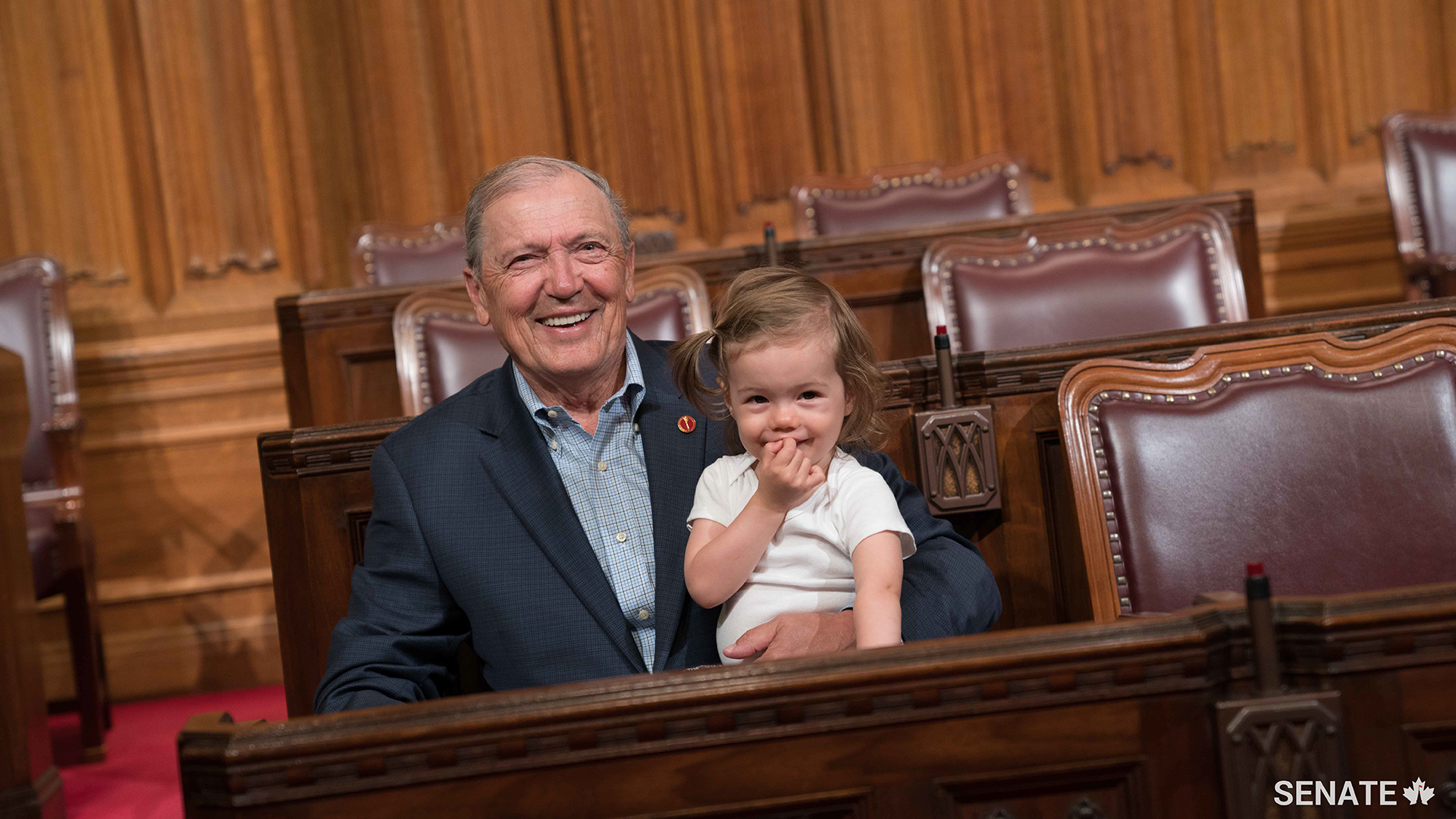
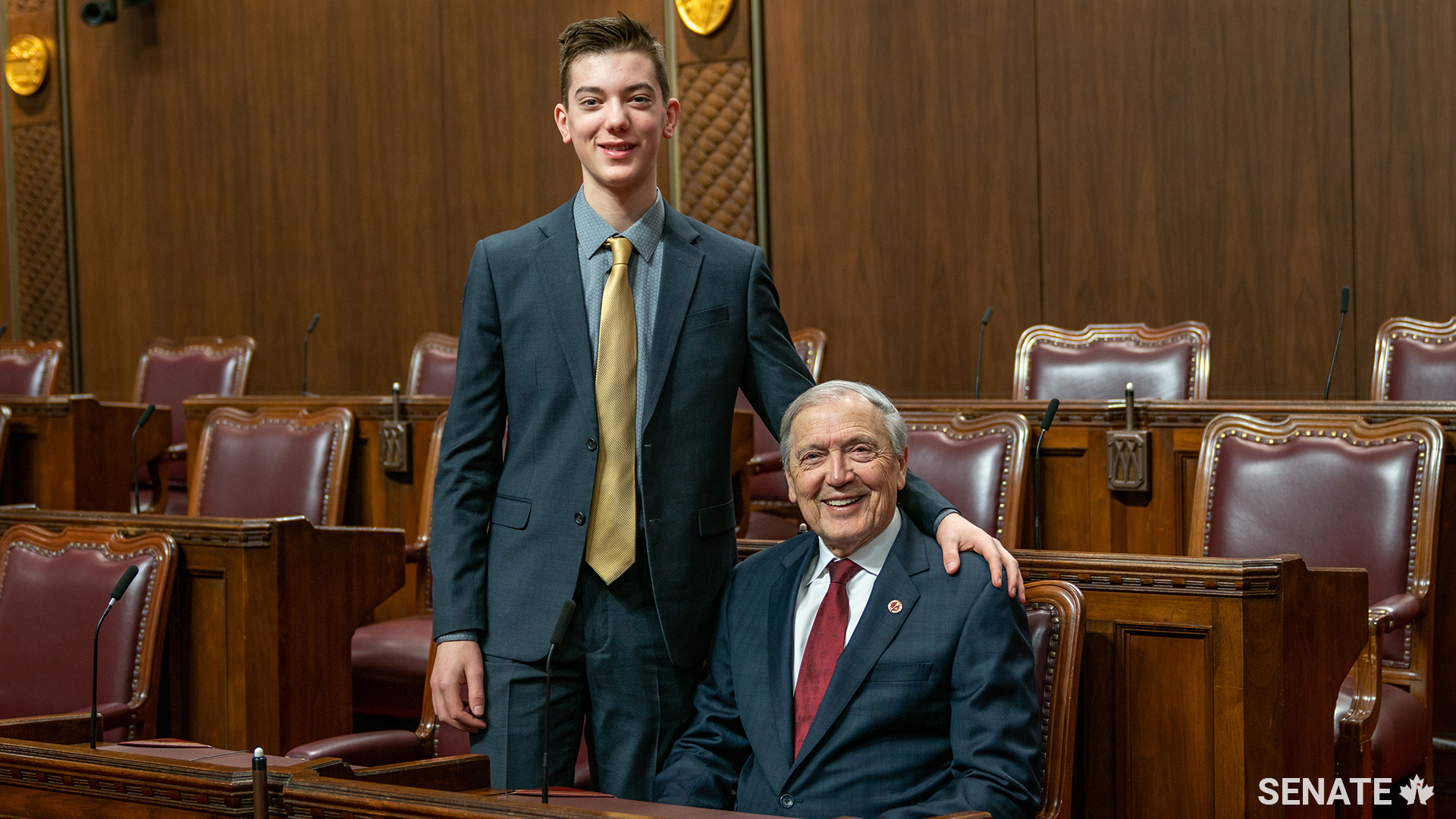
Related articles
Tags
Committee news
‘Pay attention to what the folks at home say’: Senator Tkachuk retires

A seminal childhood encounter with a future prime minister in a small prairie town foreshadowed Senator David Tkachuk’s lifelong involvement with politics. Senator Tkachuk organized dozens of election campaigns that sent others to Ottawa. In 1993, it was his turn to represent Saskatchewan on Parliament Hill and make his mark on the capital.
Senator Tkachuk retires on February 18, 2020. Before he left Ottawa, SenCAplus asked the dean of the Senate to reflect on his 26 years in the Upper Chamber.

You’ve said politics first caught your imagination when you were a young boy watching John Diefenbaker, who would become prime minister, give a speech on the back of a flatbed truck in Saskatchewan. Why did that experience make such an impact?
It was the 1957 election and we had a general store and lived behind it on Main Street. Diefenbaker travelled in a caravan, stopping in every little town. When they dropped into Weirdale, Sask., I was on my bike and I stopped to listen to him. I thought, “Geez, look at all the people who came to hear what he had to say. It would be neat to have that kind of respect.” The whole town came out. It was a big deal; he was our member of Parliament and he was running for prime minister.
Since then politics has always been a big part of your life. What is it going to be like to leave Ottawa and start a new chapter?
I’ll go back to the future. I’ll go back to doing what I used to do; volunteer and help my MP and my member of the Legislative Assembly. Retirement will give me more time to knock on doors and assist them. And I know I’m going to have more time to spend with my grandchildren, which will be great!
You are retiring as dean of the Senate — the Red Chamber’s longest-serving member. You are also the last senator who was appointed by Prime Minister Brian Mulroney. Do you remember the day the prime minister called, and how you felt when you were asked to serve as a senator?
I remember the call. I was making breakfast for my son who was getting ready for school. There were about a dozen of us the newspaper said were in the running, so initially I thought the prime minister was calling me to comment on someone else. He said no and he asked me to serve in the Senate. I said yes. I was excited and didn’t know what to expect. They wanted me to come to Ottawa quickly because there was a vote on June 10. I got the call on June 8. The next day, I was on my way to Ottawa.

During the 26 years you’ve spent in the Upper Chamber, it’s hard to find a committee you haven’t sat on. What’s some of the committee work you are particularly proud of and why?
I’ve been on 10 standing committees and five special committees (Anti-terrorism, Senate Reform, Bill C-36 on the Anti-Terrorism Act, Senate Modernization and Pearson Airport Agreement). I’m proud of the work of the banking committee, where I’ve been a member since 1996, with a short exception when I was caucus chair. In 2015, I became chair of the committee. I tried to encourage the committee to deal with issues as they came up, instead of simply sticking to the studies we selected. There are some issues you can address in two or three meetings. For example, several years ago, a proposed federal government policy would have stopped credit unions, which are big in Saskatchewan, from using the word, “banking.” I thought that was highly unfair. The committee held hearings and I think our work caused the government to back down and change the rules.
I’m also proud of the changes we made in Internal Economy. I was the one who recommended the old train station be used for the temporary Senate Chamber. I like antiques and old buildings, and I remembered being in the railway building for a first ministers’ meeting back in 1982. We toured the place and the whole committee decided it was a good option. Public Works was quite happy about it because the train station was on the list of buildings to redo. The department could combine the restoration and the Senate project with the view that someday, when we return to Centre Block, it would become a conference centre. We saved a couple hundred million dollars and didn’t have to ruin the East Block. To me that was a big deal. It’s a great place. I think senators are quite happy to be there.
A lot of bills passed through the Chamber during your tenure — which ones stand out for you?
The most important thing I did was my work on the Justice for Victims of Terrorism Act. I moved a Senate public bill in 2005 to allow victims to sue states who sponsor terrorism. At the same time, Stockwell Day, then a Conservative member of Parliament, tabled a companion bill in the House of Commons to attack it from both sides.
In 2006, the Conservatives were elected and Day became a minister, so it was left to me. The bill went through many alterations because of prorogations or elections. Finally, Prime Minister Stephen Harper, who was very interested in the issue, introduced the legislation as Bill C-10 in 2011. I worked with the government on many amendments and by the time it got to the Senate it was passed pretty quickly. Now it is being used and victims have been compensated.
You’re from Saskatchewan and have been representing the province as a senator. How has that shaped your role here in Ottawa?
I’ve been shaped by my province. I’m a Conservative; Saskatchewan is a conservative province. I’m a Diefenbaker-type Conservative, and that has shaped the way I’ve handled myself. The issues that concern Saskatchewan I have been involved in. For example, I worked extremely hard on preventing the gun registry from happening and we got rid of it under the Harper government.

I’ve also worked on agricultural issues such as animal cruelty. There was an animal rights bill introduced by the Chrétien government, which caused problems in the agriculture industry. No one wanted to have animal cruelty, but farmers were worried they would be charged with being cruel to animals for doing their job of providing food to people. We worked hard at coming to an agreement with the government that would satisfy all interests.
Now it’s the energy sector, whether it’s been working on Bill C-69 (the Impact Assessment Act) or Bill C-48 (the Oil Tanker Moratorium Act). All that work has been prescribed by where I come from — the West and Saskatchewan.
What advice would you give to incoming senators?
Pay attention to what the folks at home say. Senators represent a region, that is why we are here. The new senators aren’t going to be part of a national caucus, so they won’t feel the political influence that I think is necessary for a senator to hear. I enjoyed going to national caucus and hearing what the MPs were saying. It moulded the way I thought about issues.
I’m really hoping the new senators, especially the one from Saskatchewan, take issue with the government on energy issues because then they will be representing the province. It’s important we continue to fight on pipelines. You aren’t going to solve climate change by shutting down the oil and gas industry.
What do you think Canadians should know about what happens in the Senate?
Canadians should know the constitutional framers had a reason for having a Senate. We wouldn’t have a country without it. It was established to protect Quebecers, who were worried about protecting culture, languages, and at that time their religious interests. The small provinces were concerned the big provinces of Ontario and Quebec would be taking advantage of them, which is what is happening to the West now.
We must defend the interests of the region where we are from. We have a constitutional duty to fulfil and that’s why we are here. I’ve represented the interests of our province fairly, and I can’t ask for anything more than that.
In your maiden speech in the Senate, you started by saying that you had “the inclination to say too much” and you reminded yourself that you will have 26 years to say what you have to say. Well, it’s 26 years later — do you feel like you’ve said what you had to say?
There is always something new to say. I watched an interview this morning on the licensing of the media industry. I have a lot to say about that, but they won’t have to listen to me saying it.




